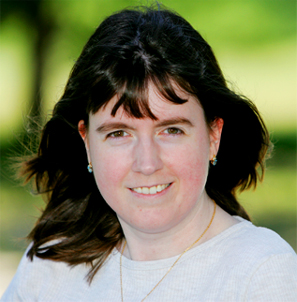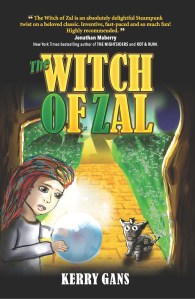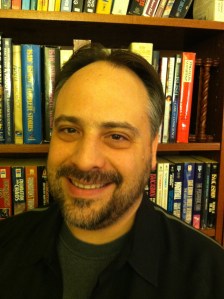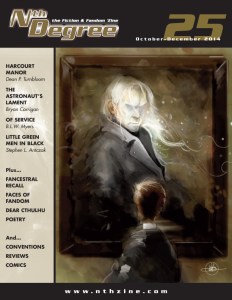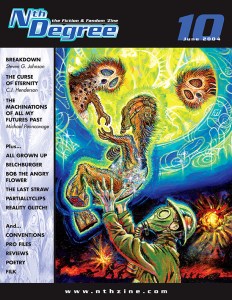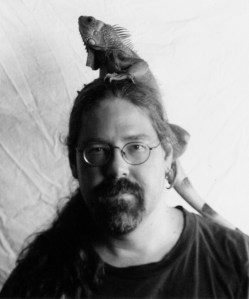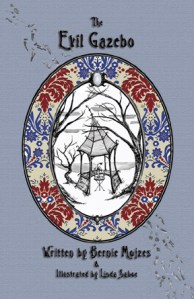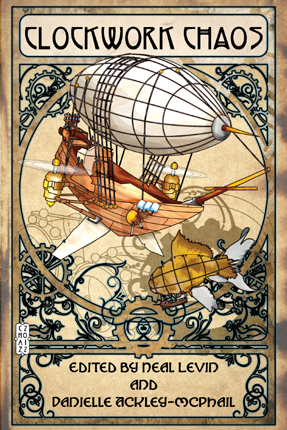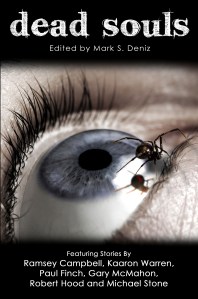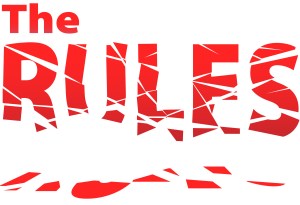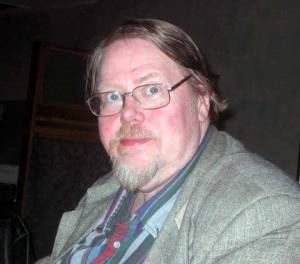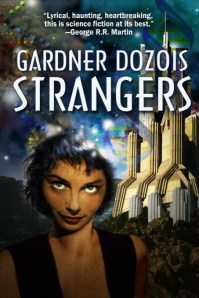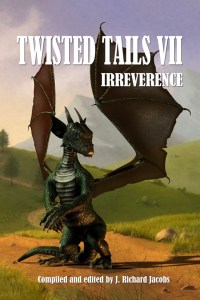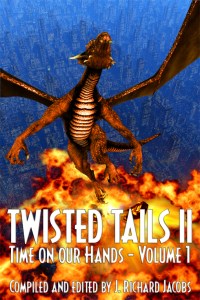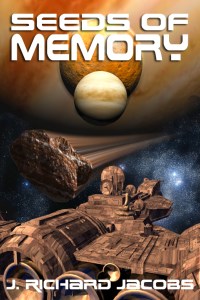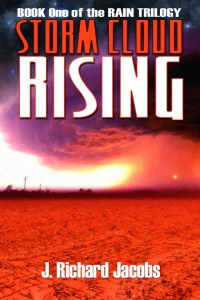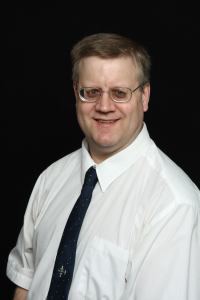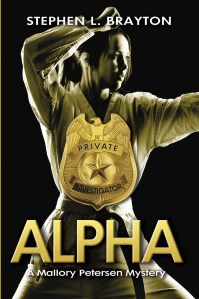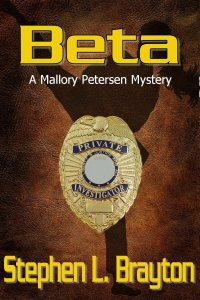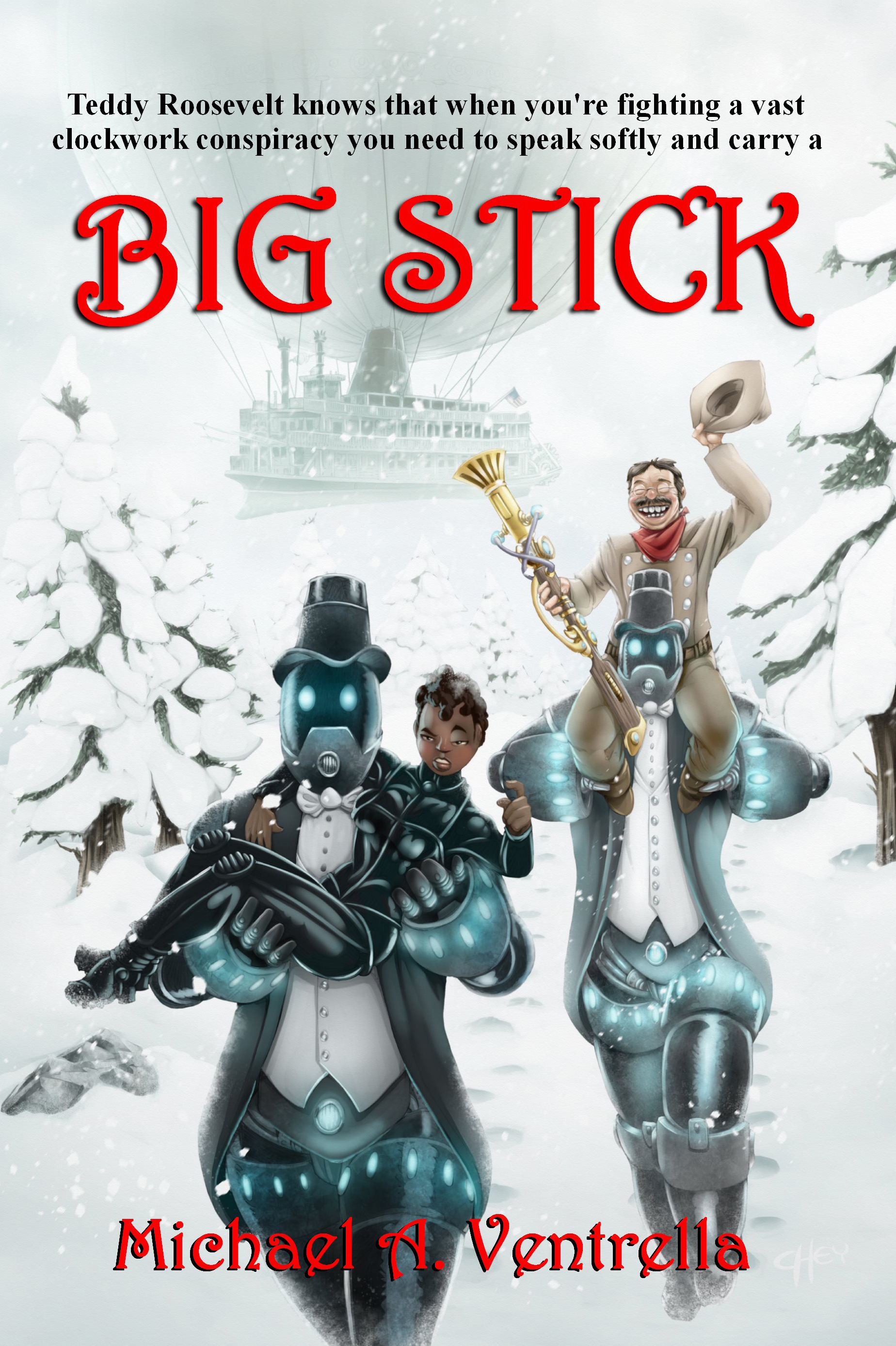MICHAEL A. VENTRELLA: I’m pleased to be interviewing author Storm Constantine.  Storm’s work has covered many genres from fantasy, dark fantasy and horror to science fiction and slipstream. She has so far written twenty-three novels, and currently has most of her short stories collected in four Immanion Press editions.
Storm’s work has covered many genres from fantasy, dark fantasy and horror to science fiction and slipstream. She has so far written twenty-three novels, and currently has most of her short stories collected in four Immanion Press editions.
Let’s start by discussing the re-release of SEA DRAGON HEIR. There is always an urge to rewrite older materials when it gets re-released; what has changed with this edition?
STORM CONSTANTINE: My urge to tinker with old works is simply that some were written when I was much younger and certain incompetencies in the writing and structure of the stories were just too much to ignore. Also, in some cases, publishers had asked for sections to be removed, simply because they wanted a shorter book. When I came to republish the books myself, I could restore them to my original vision. As I’m an editor as well as a writer, it was impossible for me to keep my hands off revising and refining!
I don’t think the Wraeththu books (the original version of the trilogy) were edited as well as they could have been. I was such a fledgling writer then, and when I returned to the books fifteen years later to republish them I was astonished really at what I’d been allowed to get away with, in terms of inconsistencies, plot holes, wobbly structure, and so on. It was glaringly obvious to me where the stories could be successfully reinforced. Some things happened ‘off stage’ that shouldn’t have. The ending of ‘Enchantments of Flesh and Spirit’ was a prime example of that. I added a couple of extra chapters to the revised edition to ‘show rather than tell’ things that occurred.
I also re-edited THE MONSTROUS REGIMENT quite heavily, as I’d never been happy with that book. The sequel, ALEPH, had technical errors to be fixed, but I didn’t do that much to it other than that.
As the reissues of my back catalogue progressed, there was less for me to do, because I’d been improving as a writer through those years of creating the original books.  By the time I got back to ‘The Magravandias Trilogy’, all I was correcting was typos. I was happy with that trilogy as it was first written.
By the time I got back to ‘The Magravandias Trilogy’, all I was correcting was typos. I was happy with that trilogy as it was first written.
VENTRELLA: What projects can we expect from you next?
CONSTANTINE: I have so many notes written down for both short stories and novels, but my worst obstacle to realizing them now is time. I have sent a couple of stories off to anthologies, but as I’ve not heard back from the editors yet, don’t want to say which they are, in case my stories aren’t suitable for them. I want to finish off the other four or so I’ve got half written, because it’s always handy to have unsold stories available, should I be approached by an editor. Also I simply want to get the ideas down.
Novelwise, there are several books I could write, but it’s knowing which to do first. I’ve started work on the third volume of the ‘unofficial’ third Wraeththu trilogy, which is a series of novellas set in Alba Sulh. English Wraeththu. The first two were quite emotionally grim stories about betrayal and obsession, but the third has a different tone – it just happens to have a couple of the characters in it from the first books. I want this one to be a ghost story, and already have a lot of disturbing images for it that are just pure, enjoyable, supernatural scares. There will be less angsting in this book!
Aside from that, I have notes for at least half a dozen novels that are all unconnected, some of them with chapters already written. My plan is to finish the short stories, finish the Wraeththu ghost story, then take a good long look at what I have in my ‘ideas’ folder on the computer. I just feel like I need to clear the decks before venturing into territories new.
Nonfiction-wise I’m working on some ideas with a friend for a couple of books concerning magical path-workings/visualisations. They will just be fun to do; sit down together and invent the stories for them. The difficult part will be for us to get together, since my friend is very busy and quite often off on research trips around the world. I hope to get at least one of these books out this year, though.
VENTRELLA: How did Immanion Press come to be?
CONSTANTINE: When I sold The Wraeththu Histories (the second trilogy) to TOR in America, I wished that the original trilogy had still been available in the UK. 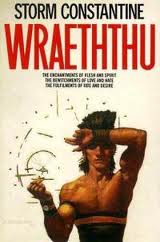 This coincided with the advent of Print of Demand publishing, which meant that it was possible for small presses to bring out books at a fraction of the price of traditional publishing. So initially, Immanion Press was set up to coincide with the Grissecon convention I ran in 2003, where I relaunched ‘The Wraeththu Chronicles’ As I was let down in the UK by a publisher who initially wanted to publish the Histories, I decided I might as well bring out my new Wraeththu trilogy in the UK too. From there came the idea to reissue all of my long unavailable back catalogue titles. Then it just grew from there. Other writers asked me about reissuing some of their out of print titles too, and I had a rather altruistic urge to help new writers get published as well. Unfortunately, the latter idea didn’t really survive contact with reality. I found that it’s incredibly difficult to sell the work of new fiction authors, so I’ve had to cut back on that dramatically.
This coincided with the advent of Print of Demand publishing, which meant that it was possible for small presses to bring out books at a fraction of the price of traditional publishing. So initially, Immanion Press was set up to coincide with the Grissecon convention I ran in 2003, where I relaunched ‘The Wraeththu Chronicles’ As I was let down in the UK by a publisher who initially wanted to publish the Histories, I decided I might as well bring out my new Wraeththu trilogy in the UK too. From there came the idea to reissue all of my long unavailable back catalogue titles. Then it just grew from there. Other writers asked me about reissuing some of their out of print titles too, and I had a rather altruistic urge to help new writers get published as well. Unfortunately, the latter idea didn’t really survive contact with reality. I found that it’s incredibly difficult to sell the work of new fiction authors, so I’ve had to cut back on that dramatically.
However, the non fiction side of things does well. People buy books on certain subjects irrespective of who the author is, or what they might have written before. Generally speaking, they just want a book on a particular topic, rather than to seek a name they already know. Megalithica Books, the nonfiction imprint, came about because a friend of mine, Taylor Ellwood, was interested in getting work out through Immanion. He saw a way to expand that side of things and eventually became the manager of the non fiction line.
VENTRELLA: Many established authors are now self-publishing their back catalogues themselves, avoiding the big publishers completely. What are the disadvantages of doing so?
None really, since the big publishers are largely not interested in doing this job for us. OK, we’re not going to have big publicity budgets at our disposal, and most presses (like mine) run on a shoe string. We can’t afford to hire staff, so have to do everything ourselves, or work with volunteers. In my case I simply don’t have enough time to be a full time publicity manager as well as everything else.
For established authors, it’s great to see their often long unavailable works back in print. 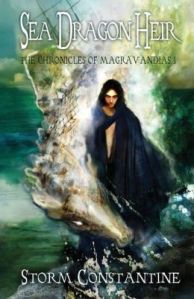 You just have to make sure you have a fairly active online presence to help publicize your work, and let people know where they can buy it.
You just have to make sure you have a fairly active online presence to help publicize your work, and let people know where they can buy it.
Is Immanion’s goal mostly to allow for established authors to reprint old works or are you actively looking for exciting new talent as well?
As I said above, the new author experiment didn’t go too well. Sadly, it just lost me a lot of money. We’re moving into ebooks more now, though, which have far fewer overheads, so perhaps in that medium I can still endorse new writers.
VENTRELLA: Has it been successful?
CONSTANTINE: Well, we’ve been around for 10 years this year, so we’re not doing too badly. The downside of it is that it eats into my working day like a pack of starving wolves. That’s another reason I’ve had to downsize the fiction line. I was in the position over the past five years or so where my workload had grown so much editing other people I had no time at all, and no energy, for my own writing. That had to stop. So I started to delegate more, to a fabulous woman, Sharon Sant, who volunteered to do editing for me. We’re publishing her first novel RUNNERS in June. I might not be able to pay a salary to people, but I can help out in other ways.
VENTRELLA: Starting authors often mistakenly think they can do this as well; they self-publish and then go nowhere. What advice do you have for beginning writers concerning getting published?
CONSTANTINE: One of the biggest downsides of everyone being able to self-publish easily, either through ebook or printed copies, is that they can do so without their work ever being looked at by a critical pair of eyes, whether that’s a professional editor or a friend who’s prepared to be honest. Editing is a very different job to writing. Even though I edit my own work to a degree, I still get someone else to do so as well. Writers are too close to their own work. We know everything that’s going on, but the readers don’t, and sometimes we don’t put enough in, or we over-write and things have to be trimmed back. The more people who can read a book before publication, the better. 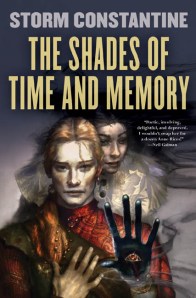 You have more chance of errors being found.
You have more chance of errors being found.
Even though there are now millions more people producing books of some format or another, sadly a lot of it is let down and diminished by the fact the writing itself isn’t up to scratch, and the writers don’t know their craft.
When I ran a creative writing class, I generally had to spend the first term every year teaching the students how to write. They knew nothing of grammar, syntax, spelling, punctuation or narrative structure, (the writer’s essential tool box), not to mention how to create credible characters, a compelling plot and realistic dialogue. They just had an idea they wanted to write stories or a novel, and didn’t even think it involved any particular skills other than the storytelling urge. From what I’ve seen there is a hell of lot of new writers actually publishing works with all of those aforementioned aspects being of poor quality.
So, first advice – hone your writing skills, learn your craft, share your work with other writers to get constructive criticism. Your Mom saying, ‘yes, that’s very nice, dear’, is no use to a writer. You want and need people to tear your work apart really. You don’t have to agree with every criticism, and might choose to ignore some of it, but without this flow and exchange you’re at a disadvantage. You owe your work your best shot, and that means using the tools at your disposal to make that work as good as it can be.
Also, it’s now absolutely essential for new writers to self-promote and use the Internet and social media to their full advantage to get word about and create a buzz.
VENTRELLA: Some writers tend to avoid controversy, but that doesn’t seem to stand in your way. Have you ever avoided an idea because you thought your readers (or editors) wouldn’t accept it?
CONSTANTINE: Not so far, that I can think of!
VENTRELLA: To the other extreme, have you ever specifically written in order to make a point about religion, politics, sexual orientation and so on, or do these things just flow from the plots?
CONSTANTINE: I think a writer’s political and religious beliefs tend to permeate their work naturally. 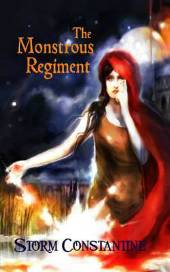 I haven’t gone out of my way to pontificate about these things, but I don’t think any reader of my work would be in doubt about where my political and spiritual beliefs lie.
I haven’t gone out of my way to pontificate about these things, but I don’t think any reader of my work would be in doubt about where my political and spiritual beliefs lie.
VENTRELLA: Do you think fantasy/science fiction settings allow you to tackle these issues in a way you could not otherwise?
CONSTANTINE: These genres give writers marvelous freedom to tackle issues it might be more difficult, or even risky, to tackle in a mainstream novel. Science fiction has long been used to criticize political regimes under the guise of fiction. I can’t help thinking that writers who have run into trouble over what they’ve written wouldn’t have done so if they’d set their stories in a fantasy world. It’s liberating; you can say what you like really.
VENTRELLA: How much of your own personal religious beliefs are reflected in your work?
CONSTANTINE: I am a spiritual person but not a religious person, but I do possess Pagan leanings. And yes this is reflected in my work.
VENTRELLA: What book do you advise for the starting Constantine reader and why?
CONSTANTINE: When I discover a new writer to read, I like to start at the beginning of their works if possible, but other people might feel differently. I don’t think it matters, other than it’s perhaps not the best idea to start with the second or third volume of a trilogy! I do have a number of short story collections published through Immanion Press, which can also give people a taster of my style.
VENTRELLA: The Wareththu series is probably your most famous. Do you plan on continuing to expand it?
CONSTANTINE: I think I’ll always return to it, but as I’ve concentrated on it exclusively for quite a time now, I want to explore something different for a while. I’ll continue to produce the Wraeththu story anthologies to keep my hand in. These are published roughly annually (or I hope them to be) and include stories by other writers as well as a couple by me. The first was ‘Paragenesis’, and the recently published ‘Para Imminence’. Both are available through Immanion Press, and I’m just mulling over ideas for the theme for the next one. Paragenesis explored the start of Wraeththu, and Para Imminence its far future. Anyone interested in contributing, please do get in touch via editorial@immanion-press.com
On top of the anthologies, I’ll continue to publish novels set in the Wraeththu world but written by others. A thriving online community of fan fiction writers helped keep Wraeththu alive during the years (fifteen of them) when I couldn’t sell any more Wraeththu novels to publishers.  I began to publish the best of these writers, and again am always on the lookout for new ones. If anyone is interested, get in touch at the aforementioned address.
I began to publish the best of these writers, and again am always on the lookout for new ones. If anyone is interested, get in touch at the aforementioned address.
VENTRELLA: Do you think that there are things women can write about that just can’t be done by men writers?
CONSTANTINE: Not really, but perhaps it’s fair to say they might be able to write about certain aspects of life more convincingly than a man.
VENTRELLA: Are you someone who outlines heavily or are you a “pantser”?
CONSTANTINE: Not quite sure what a pantser is, but I don’t outline that heavily. I feel that stories are organic entities that tend to create themselves as they emerge. Publishers always used to demand huge outlines from me, which I found a pain to do, and quite frankly the finished books rarely had much resemblance to their synopses. Once a story is written down, then it’s time to go back and work on fine-tuning the plots, locations and characters. I can’t put all that in a synopsis. The story has to come out first.
VENTRELLA: Do you start with an idea, a setting, or a character?
CONSTANTINE: It can be any of those, just a spark of an idea, a smell, an impression, an emotion.
VENTRELLA: All writers are told to “write what you know.” What sort of research do you do before writing?
CONSTANTINE: I think it’s important to get your facts right. I often see movies about the 70s and see so many anachronisms in them. That’s why I write fantasy instead of historical novels. You have far more freedom in a fantasy novel about, say, what people might have on their breakfast tables. You don’t want to find Pop Tarts on a Victorian table in a novel, do you? But you do see that kind of thing. I really admire historical novelists; the amount of research and checking they must have to do is phenomenal.
For myself, I research aspects that apply across universes and realities. For example, I have an idea to write a fantasy novel that heavily involves the weather – so I bought some books for research on that.
VENTRELLA: What techniques do you use to make your protagonist someone with whom the reader can relate?
CONSTANTINE: I think it’s important to observe in reality how people speak, how they use their bodies and faces to communicate, how much a silence says. No one really speaks in formal dialogue like an updated Shakespeare play. 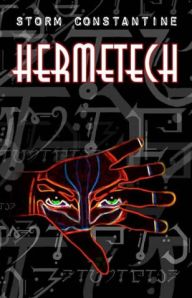 Of course, it would be really irritating to have characters in a story talking completely realistically, so you have to impose some boundaries and restrictions, but it’s important to have an ‘ear’ for realistic speech.
Of course, it would be really irritating to have characters in a story talking completely realistically, so you have to impose some boundaries and restrictions, but it’s important to have an ‘ear’ for realistic speech.
Giving your characters credible behavior makes them believable, and people will relate to them more effectively. One thing I always tried to stop my students doing was using fiction clichés, such as people screaming or dropping a teacup/glass/plate in shock. When people are really frightened, I think most are more likely to swear beneath their breath, or not make a sound, than scream like someone in an old horror film. And have you ever seen someone drop something they were holding in shock? I haven’t. Also, things like collapsing/fainting. I don’t see that happen much either. Screaming might have its place, but the dropped tea cup and maidenly collapse really have to go!
VENTRELLA: What do you do to establish a believable fantasy world? In other words, how can you introduce the fantasy elements into the story and make them real without relying on info dumps?
CONSTANTINE: It’s just a case of being aware of it, and not dumping too much at once. A great amount of detail can be introduced with subtlety, such as in the ‘stage directions’ you might use for characters during lengthy dialogue. What are they doing as they’re talking? What are they picking up, leaning on, looking at, avoiding, etc etc.
VENTRELLA: When going through second and third drafts, what do you look for? What is your main goal?
CONSTANTINE: Pretty much all of the things I’ve talked about throughout the interview. Plot holes, realistic characters and situations, grammatical/syntactical errors, spelling, compelling dialogue and so on.
VENTRELLA: What criticism of your work do you disagree with the most?
CONSTANTINE: I had this one reviewer, who used to go out of his way to review my books, who absolutely hated my work.  He obviously got his jollies by being able to slag me off once a year. I disagreed with his observations because they were subjective and just plain offensive. Clearly, he wasn’t comfortable with many of the subjects I include in my work.
He obviously got his jollies by being able to slag me off once a year. I disagreed with his observations because they were subjective and just plain offensive. Clearly, he wasn’t comfortable with many of the subjects I include in my work.
I don’t expect everyone to like what I write – that would be an unrealistic expectation. And everyone is entitled to their opinion. A lot of people love writers I absolutely despise, but I don’t believe I am right and the others are wrong. It’s just down to taste.
VENTRELLA: All writers basically write what they would like to read. So what do you like to read? Who are your favorite authors?
CONSTANTINE: My favourite authors are Tanith Lee, Alice Hoffman, Jack Vance, P G Wodehouse, Jonathan Carroll, to name but a few. I have just about everything the first three on that list have ever written.
VENTRELLA: What advice would you give an aspiring author that you wish someone had given you?
CONSTANTINE: Don’t expect to be rich. Let go of any attachment to outcome, and simply write because you love to do so. Write what you love, because your heart will show, and other people will be more likely to love it too.
Thanks for giving me the opportunity to talk with you about my work.
Filed under: writing | Tagged: editors, fantasy world creation, first draft, nonfiction, publishing house, self-publishing, Storm Constantine, Wraeththu, Write what you know, writing advice | Leave a comment »



